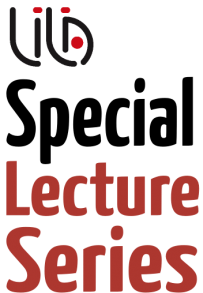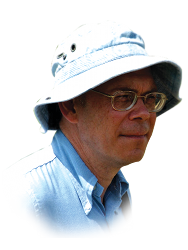

Paula Richman – 21st Century Thinking with Epic Narratives
Sunday 18th, January 2015 – 7:00-8:30 pm – Tea at 6:30
Gulmohar Hall, India Habitat Centre
The Lecture: Epic narratives maintain their cultural centrality over time if they are ‘good to think with’. Epic narratives that continue to speak to people today help them reflect upon their ultimate concerns and their relationship to society and the natural world. This talk will explore how incidents and categories in Indian epics prompt us to reflect upon relations between the forest and the city, between ideal actions and complex dilemmas in everyday life, and about the nature of war and violence.

Alok Bhalla, writer, translator and editor, chaired the evening and moderated the discussion. Alok Bhalla obtained his Maters from Delhi University and PhD from Kent State University, USA. He was Lady Davis Visiting Professor, Hebrew University, Jerusalem, Fellow at the Rockefeller Centre, Belagio, Italy, and at the Indian Institute of Advanced Study, Shimla. He retired as Professor from English and Foreign Languages University, Hyderabad. Since then, he has taught at Jamia Millia Islamia, Ambedkar University and Jawaharlal Nehru University, Delhi. Recently, he was at the Institute of Advance Study at Nantes, France. His recent publications include Wild Verses of Wit and Whimsy: From Alpha to Zeta in 26 Movements, Stories about the Partition of India (4 volumes), Partition Dialogues: Memories of a Lost Home, Cartographers of Hell (on the Gothic Novel) and Politics of Atrocity and Lust (on the vampire tale), books on translation, Garcia Marquez, Ramkatha and Saadat Hasan Manto. In addition to numerous research papers, he has translated Dharamvir Bharati’s Andha Yug, Intizar Husain’s Chronicle of the Peacocks, Nirmal Verma’s Dark Dispatches etc. He used to edit Yatra: Writings from the Indian Subcontinent (6 volumes).


The LILA Special Lecture Series of September 2013 features two of today’s major scholars on ancient India. Prof. Paula Richman is a Ramayana specialist of international repute. She will speak about the Ramayana Performances as seen in South India through three art forms: the Kuttaikuttu of Tamil Nadu, the Yakshagana of Karnataka and the Nangiar Kuttu of Kerala. Her colleague at Oberlin College, Prof. Michael H. Fisher, an expert on Mughal and Raj eras, has published extensively on the interactions of Indian and British populations in and after the British Empire. His lecture will concern the early Indian migrants to England in the 17th-19th century, with a special focus on Indian writers. Paula Richman and Michael H. Fisher are two friends of LILA. Their collaboration with our foundation comes as yet another confirmation, along with the PRISM lecture series, of the enthusiasm our young movement is already provoking.
Paula Richman – Learning from Performance: Epic Narrative in Regional Theatre Traditions of South India
Saturday 7th, September 2013 – 6:30-8:00 pm – Tea at 6:00
Seminar 1 & 2, India International Centre

The Lecture: We all know that narrative changes as it moves from page to stage, but what kinds of influences, conventions, and concerns shape narrative when it comes from texts such as the Ramayana? How do the conventions of particular theatrical genres shape the ways in which epic incidents get enacted and interpreted? Which characters come to life most vividly in dance-dramas in open air theatres, puppet plays, or proscenium stages? Which incidents seem dated or out of date and which ones continue to speak to spectators today? This talk reflects on the fixed and fluid aspects of enacting epic incidents in India today, with examples drawn from Yakshagana (Karnataka), Kattaikkuttu (Tamilnadu), Nangiar Kuttu (Kerala), and Ramlila (north and central India).
Rustom Bharucha, Professor at the School of Arts and Aesthetics, JNU, will introduce the speaker and moderate the discussion. His areas of interest are interculturalism, globalization, theatre, secularism, the politics of faith, public culture, and oral history. As a director, dramaturge, and writer he has been engaged in a series of interventions in the educational, activist, performance and fine arts sectors in different parts of India as well as in the Philippines, South Africa, Brazil, the United States and the Netherlands. He has directed many plays at the grassroots cultural organization Ninasam in Karnataka. More recently, he has worked as a project director of the Arna-Jharna Museum of the Desert in Jodhpur, Rajasthan, devoted to the study of traditional knowledge. For many years, he was an Advisor for the Prince Claus Fund for Culture and Development in the Netherlands, which enabled him to network different international projects and initiatives.
Michael H. Fisher – Extending Indian History into Britain: Indians in England, 17th-19th centuries
Friday 27th, September 2013 – 7:00-8:30 pm – Tea at 6:30
Amaltas Hall, India Habitat Centre

Michael H. Fisher holds the Danforth Chair in History at Oberlin College, USA. His research explores the social, cultural, and political interactions between Indians and Europeans, in India and in Europe, from the 16th century onward. Among his books are: Migration: A World History (Oxford University Press 2013), The Inordinately Strange Life of Dyce Sombre: Victorian Anglo Indian M.P. and Chancery ‘Lunatic’ (co-published, London: Hurst; New York: Oxford University Press; Delhi: Cambridge University Press, 2010), Across the Three Seas: Travellers Tales from Mughal India (New Delhi: Random House, 2007), and The First Indian Author in English: Dean Mahomed (1759-1851) in India, Ireland, and England (Delhi: Oxford University Press, 1996).
The Lecture: Men and women from India have been visiting and settling in Europe for four centuries. Their diverse lives and what they wrote and published has affected the course of both Indian and European history. This illustrated talk will consider some of the rich variety of experiences and effects of the earliest Indians who travelled to England, thus extending Indian history to include Britain.
Jonathan Gil Harris, Professor of English at Ashoka University, will introduce the speaker and moderate the discussion. Jonathan Gil Harris is interested in early modern understandings of globalization and the foreign, and how these have helped shape our knowledge and experiences of bodies, disease, commerce, time, and religious difference. His latest books include Shakespeare and Literary Theory (Oxford UP, 2010), and Marvellous Repossessions: The Tempest, Globalization, and the Waking Dream of Paradise (Ronsdale, 2012). He is also the editor of Indography: Writing the “Indian” in Early Modern England (Palgrave, 2012). His new book, The First Firangis: How to Be Authentically Indian, will be published by Aleph Books in 2014.

